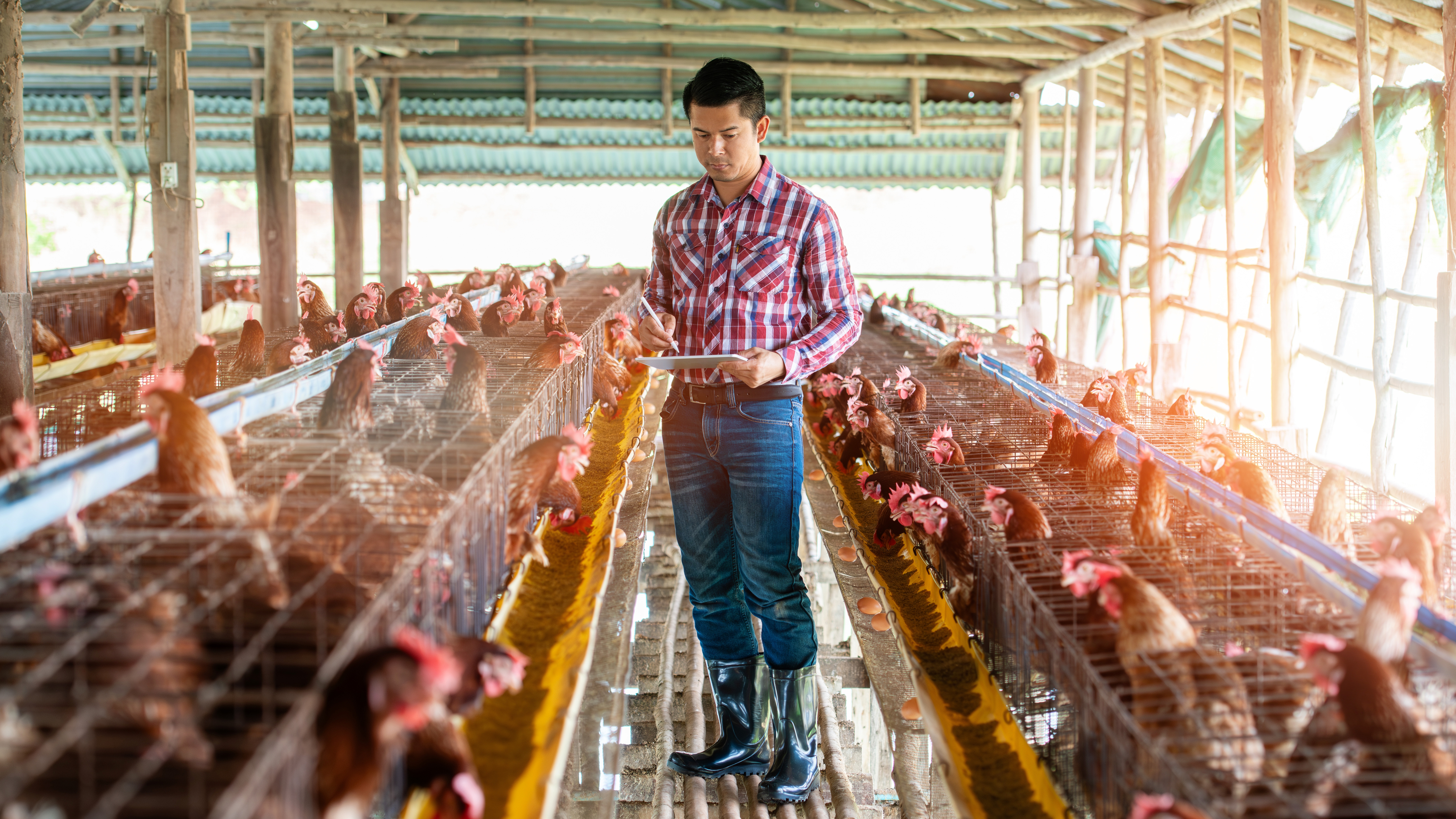
When highly pathogenic avian influenza (HPAI) strikes a farm, the result is devastating. Biosecurity is the key to protecting your flock—and your investment—against this disease.
To help you bolster biosecurity, USDA is offering two free, voluntary biosecurity assessments for operations not affected by HPAI. The first is a Wildlife Biosecurity Assessment; the second is a Biosecurity Incentive-Focused Assessment. Producers can request one or both. USDA-trained staff will visit your facility and identify actionable strategies that you can immediately implement to strengthen your operation’s defenses against HPAI. Additionally, USDA will share up to 75 percent of the costs to fix the highest-risk biosecurity concerns identified by the assessments.
If your operation is hit by HPAI or you’re operating in an area impacted by the virus, we will conduct a mandatory biosecurity audit before you restock to help protect your flocks and ensure you are eligible for indemnity for your restocked poultry.
While the biosecurity assessments are available to all commercial poultry producers not impacted by HPAI, USDA will prioritize assessments at commercial egg-laying facilities in the highest egg-producing States as part of our commitment to help lower egg prices for the American consumer.
Webinar
Available Services
Available to all commercial poultry operations not affected by HPAI
APHIS Wildlife Services will conduct on-farm assessments to identify how wildlife could spread HPAI to your flocks. We will recommend facility repairs and options for managing wildlife to shield your poultry from HPAI.
A wildlife biosecurity assessment is not a one-time service but a series of regular engagements between Wildlife Services staff and facility owners or managers. During these engagements, we will help you build upon and follow up on risk mitigation recommendations.
Email poultry.biosecurity@usda.gov or call 844-820-2234 to request a wildlife biosecurity assessment.
To help expedite the intake of your biosecurity assessment request, please provide the following information when you email or call us:
- Premises name
- Premises ID (if known)
- Premises 911 street address (the actual location of your flock)
- Premises city, State, and zip code
- Premises coordinates (decimal degree format, if known)
- Production type
- Requestor’s name, phone number, and email address
Available to all commercial poultry operations not affected by HPAI
APHIS Veterinary Services will work with producers to review structural and operational biosecurity plans and practices. Structural biosecurity includes measures used to construct and maintain coops, pens, poultry houses, and other facilities. Operational biosecurity includes practices, procedures, and policies that farm owners and workers follow consistently. We will support strategies to strengthen your biosecurity plan and practices to prevent the introduction of HPAI.
Email poultry.biosecurity@usda.gov or call 844-820-2234 to request a Biosecurity Incentive-Focused Assessment.
To help expedite the intake of your biosecurity assessment request, please provide the following information when you email or call us:
- Premises name
- Premises ID (if known)
- Premises 911 street address (the actual location of your flock)
- Premises city, State, and zip code
- Premises coordinates (decimal degree format, if known)
- Production type
- Requestor’s name, phone number, and email address
Required for commercial operations affected by HPAI or operating in a control area
If your commercial poultry operation has been confirmed positive for HPAI, you must pass an Infected Premises Restock Biosecurity Audit before restocking if you wish to be eligible for indemnity for the restocked poultry.
If you are moving poultry into a designated buffer zone, you must pass a USDA Buffer Zone Placement Biosecurity Audit to be eligible for Federal indemnity for any birds that moved onto the premises.
Follow the normal permitting process for movement of poultry into a buffer zone. Contact the APHIS Area Veterinarian in Charge or your State animal health official for specific details.
Download Printable Version (985.15 KB)


